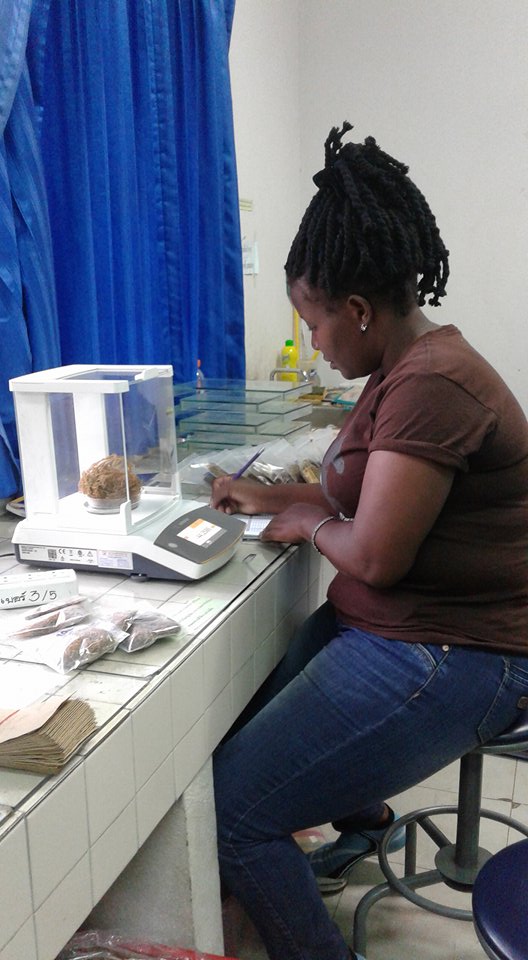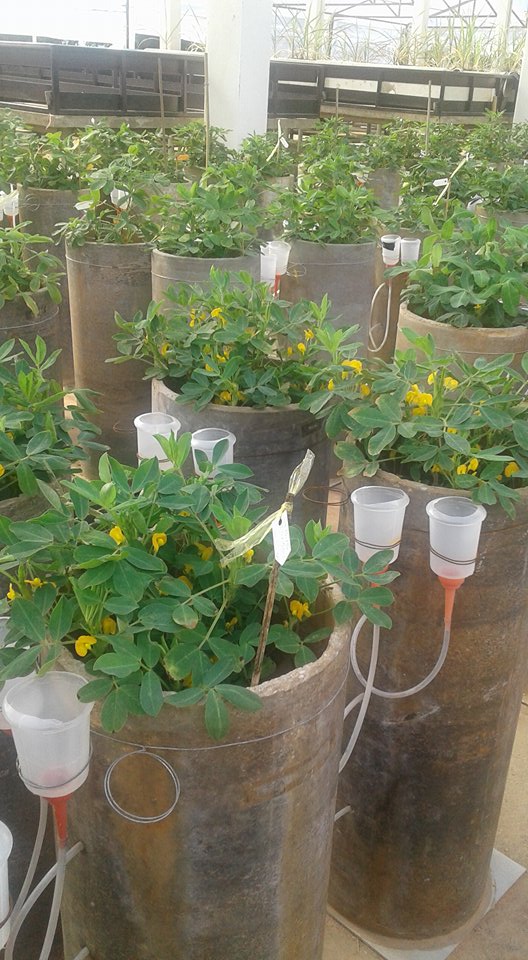Mozambican researchers return to national program with grad degrees
By Allison Floyd
University of Georgia, Peanut & Mycotoxin Innovation Lab
Jacinta De Carvalho and Rita Valentim Manjonda left their jobs with the Mozambique Agricultural Research Institute two years ago for a chance to study agronomy at Kohn Kaen University in Thailand, an institution with a history working with the U.S. peanut innovation program.
They returned home in August and hope that their research into how Valencia peanut varieties respond to drought will help breeders to develop varieties that are more resilient in challenging climates.
“I focused on drought, due to the climatic changes that are taking place in recent times; agriculture is one of the sectors most affected by the changes,” said De Carvalho. “Having a better knowledge of the subject may help in the future to obtain varieties tolerant to drought.”
De Carvalho and Manjonda are both part of the young peanut program in Mozambique. With a small team and limited resources, program leaders chose to send De Carvalho and Valentim to Thailand with the support of the Feed the Future Peanut & Mycotoxin Innovation Lab. (Kohn Kaen was chosen due to successful previous collaborations with the Peanut Collaborative Research and Support Program, the predecessor of the Peanut & Mycotoxin Innovation Lab.)
“The peanut team in IIAM (the national program) is new (about 5 years old) and lacks personnel,” said Amade Muitia, the only peanut breeder in Mozambique and PMIL’s main collaborator there. “One of the objectives for the team leaders is capacity-building and these two were awarded the scholarship under premises of this objective.”
The two women recently finished master’s degree work and returned home to the Nampula area to rejoin the Muitia’s team.
“As the peanut breeding program grows in number of trained staff, its outcomes will be improved by providing to farmers the best-bet peanut technologies,” Muitia said.

Jacinta De Carvalho works in the lab at Kahn Kaen University, where she received a master's degree.
Their research into drought tolerance will help toward one of the main goals of the team at home.

Rita Valentim and Jacinta De Carvalho left their jobs in the national agriculture program in Mozambique to study the drought tolerance of peanuts while working on master's degrees in Thailand.
“This will help breeding programs in Mozambique to improve peanut varieties and select them under drought condition,” said Manjonda. “In Mozambique, drought is one of the main problems limiting peanut yield on the farmers’ fields. Rain is unpredictable nowadays, so using drought-tolerant varieties is a good strategy to improve yields.”
The women chose Valencia-type peanuts to research because those varieties are early maturing, helping farmers to get their crop in sooner.
While she already worked in agriculture before returning to school, De Carvalho appreciated learning how plant scientists analyze a plant’s ability to withstand drought – not solely by measuring yield, but also based on some physiological and morphological traits.
“We use water use efficiency (WUE), specific leaf area (SLA), SPAD chlorophyll meter reading (SCMR) and root traits to help us in the selection of the best variety under drought stress. Dry periods during growth affect many of these traits and reduces yield of peanuts,” she said.
She’s ready to put her new knowledge to work at IIAM.
“I hope to share information to help producers, because existing drought-tolerant varieties will minimize yield reduction due to the effect of drought,” De Carvalho said.
“Life is dynamic today, and that means you have to be prepared for future challenges.”
– Published Sept. 1, 2017
